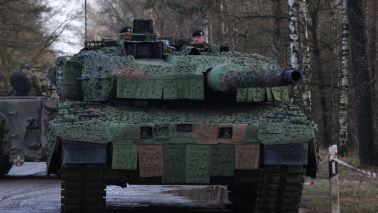The gung-ho photo on the dust jacket — battle fatigues, the red beret of the Paras, eyes narrowed to determined slits — suggests a touch of the Paddy Ashdowns. But that is at odds with the picture of the author that emerges from this his first book: ‘For my part, I do not think I have been in action in the broadest sense for more than about six of my 37 years of commissioned service.’
Yet as military careers go in an age of peace-keeping and humanitarian intervention, General Sir Rupert Smith’s has not been exactly uneventful. As a young company commander in the 1970s he was blown up by the IRA in Crossmaglen; years later, as Deputy Supreme Allied Commander Europe, he was held personally responsible by the Beijing press when the Chinese embassy in Belgrade was hit in an air strike.
Retiring three years ago, he decided against writing his memoirs. Instead he distilled his long professional experience into this extended argument for doing things differently. His first sentence — ‘War no longer exists’ — is certainly arresting, although he quickly restates the matter rather less baldly:
In its place we have what he terms ‘war amongst the people’, a combination of guerrilla and revolutionary warfare characterised by a dynamic not of war and peace but of confrontation and conflict. Forces in Europe have shrunk, but retain the form and equipment intended for other battles in another age. We now conduct operations with ‘softer’ sub-strategic objectives, intervening to establish a situation in which political objectives can be achieved by other means.War as battle in a field between men and machinery, war as a massive deciding event in a dispute in international affairs: such war no longer exists.
Smith dismisses ‘War on Terror’ as a form of words ‘without useful meaning’.






Comments
Join the debate for just £1 a month
Be part of the conversation with other Spectator readers by getting your first three months for £3.
UNLOCK ACCESS Just £1 a monthAlready a subscriber? Log in